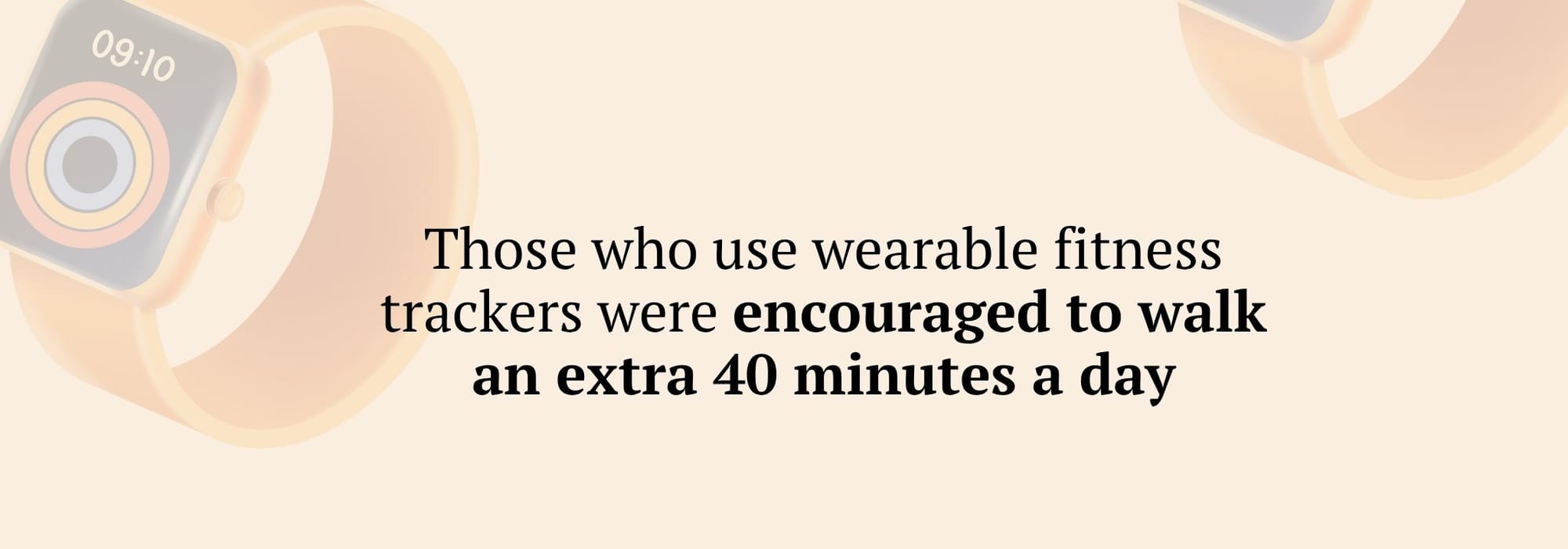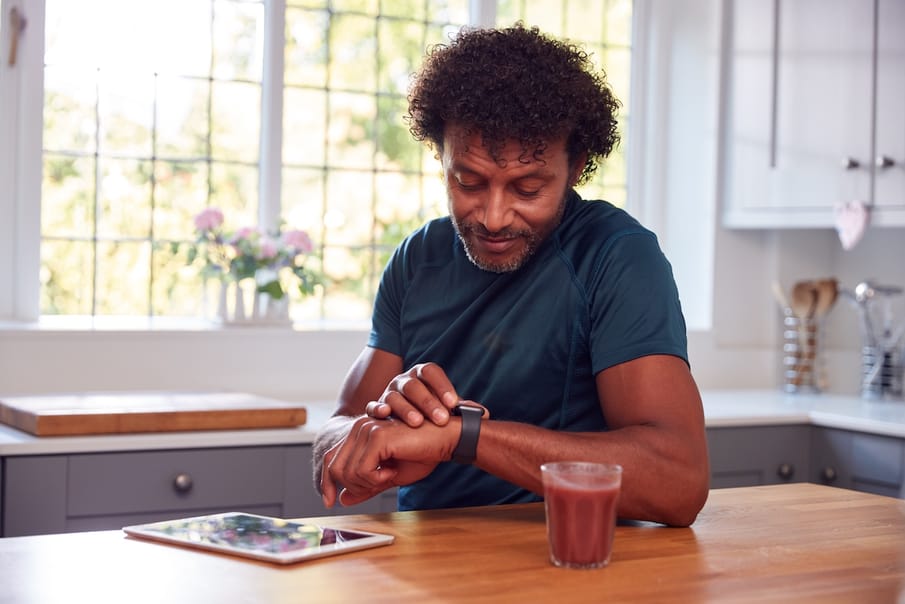Whether it’s a simple step-tracking watch or a high-end smart ring recording everything from your monthly cycle to your stress levels, more people than ever are using wearable fitness trackers. But is constant insight into our health always a good thing?
According to YouGov, 37% of Brits now use wearable devices such as fitness bands – increasing from 19% in 2019 – with the wearable fitness market set to be worth an eye-watering £34 billion in 2025. Using fitness trackers (such as watches and rings) can be extremely motivating – with a 2022 study in Lancet Digital Health finding those who used them were encouraged to walk an extra 40 minutes a day. But as the list of metrics we can track mounts up, there can be drawbacks, too, with experts warning that keeping tabs on all this data could lead to unnecessary anxiety. So, can we strike a balance between being inspired and being obsessed with our fitness levels?
The pros of wearable fitness trackers
There’s no doubt that, for many of us, fitness trackers can bring with them real advantages. Motivation is a big draw, with that review of studies in Lancet Digital Health noting those who wore fitness trackers walked an extra 1,800 steps a day, likely thanks to motivating features that most trackers offer such as setting a step goal, or seeking to ‘close’ activity rings, which incentivise us to habit-stack exercise into our day. Most of us love this sense of accomplishment, and research, such as a 2023 study in the Journal of Medical Internet Research, has shown that those who tracked their step count accurately, perceived their diet as healthier, and noted improved mental health as a result.
“I have an Apple watch, and feel really motivated by it; I do my best to close my three rings before the end of the day,” says positive psychologist Anna Shears. “If I’m close to my target, I’ll walk the dog again, or put it in dance mode to start dancing to hit my goals! I can feel the health benefits of getting out and walking more because of tracking.”

The multifunctionality of this tech can also come in handy – whether it’s the ability to track your menstrual cycle (to spot any changes to discuss with your GP), know if you need to get more sleep, or even to monitor a health condition. In fact, according to a recent study, published in Nature Medicine in 2024, fitness trackers and smartphones could monitor response to medications of those with heart conditions, and provide similar information to in-person hospital assessments.
“After I had my first child, my resting heart rate was significantly higher than pre-birth, and I started to get heart rate spikes from just climbing the stairs,” says Leanne, a mum of two. “Presenting the evidence from my fitness tracker to my GP meant that I wasn’t dismissed, and I was diagnosed with an overactive thyroid, which could have gone on being undiagnosed without my wearable.”
The cons of wearable fitness trackers
Like most things, fitness trackers have their drawbacks, too. Largely, when it comes to data, is having that wealth of information constantly at our fingertips always a good thing?
Recently, eating disorder charity Beat warned that, for some individuals, wearing a fitness tracker could actually make their health worse by leading to obsessive tendencies, while the British Heart Foundation acknowledged they could increase health anxiety, and flagged the importance of recognising that personal trackers are not actual medical devices: “They cannot replace medical tests, and are not designed to give a diagnosis.”
“Fitness trackers can be brilliant for building awareness, but it’s easy to fall into the trap of constantly checking your stats, and not feeling like you’re doing enough. For those who already struggle with chronic health issues or anxiety, it can add pressure, rather than help,” says psychotherapist Tina Wright.
When we’re smashing our goals, our mood may improve, but, equally, it works the other way, too. The Journal of Medical Internet Research study found that those whose tracker counted fewer steps felt inadequate, chose to eat less healthily, and reported reduced self-esteem. “For me, I had a step tracker and I found it stressful – I felt that if I didn’t do enough steps, then I was a complete failure,” explains Charlotte, a teacher.
Reliance on this tech can result in feeling too attached, or even obsessed, with the information and hitting targets. Not reaching your goals can become a tool to berate yourself with, and forgetting to wear your tracker might prompt feelings of guilt, shame, or disappointment in yourself – you may even feel a sense of dread or panic to go without it for a day.
Dependence on wearable tech could potentially even result in demotivation, as you forgo healthy habits when not wearing a tracker because there’s no evidence to prove it happened. Essentially, if you’re not careful and self-aware, trackers might perpetuate a negative relationship where you become too focused on the statistics, and less on the health benefits you originally aimed for.
How to develop a healthier relationship with your fitness tracker
Especially in this day and age, technology can really transform our health, but as we’ve explored, it’s vital to be aware of our habits and how we’re engaging with these advancements. So, here’s our essential guide to keeping both your health and mind on track with a wearable fitness device.
1. Reframe your perspective
Start to see a wearable as an extra health tool, rather than something to live your life by. “Treat your tracker as a companion, not the boss of you,” says psychotherapist Tina Wright.
![]()
2. Avoid overchecking
Checking on your heart rate or step count every hour isn’t a helpful habit, so limit how often you review any apps. “Check in just once or twice a day – and always balance the numbers with how you actually feel in your body,” says Tina.
3. Listen to your body, and focus on movement
“Your wellbeing is more than a set of stats,” Tina emphasises, so focus on your body each time you exercise. The key is movement that works for you, rather than purely done to meet a target.
“For me, fitness trackers can help keep you consistent, but my ethos is about making exercise a daily habit, like brushing your teeth, and focusing on movement in some form every single day!” says personal trainer Emma McCaffrey of movewithemma.co.uk.
Fitness trackers have their place, but it’s important to use them to support your body, rather than feeling as if they’re in control of it. If you’re goal-oriented and motivated, you might find a wearable really helpful in improving your wellbeing, but if it’s leading to negative thoughts or unnecessary worry, it’s perfectly OK to take off the strap, step away from the metrics, and just focus on moving your body instead.


Comments